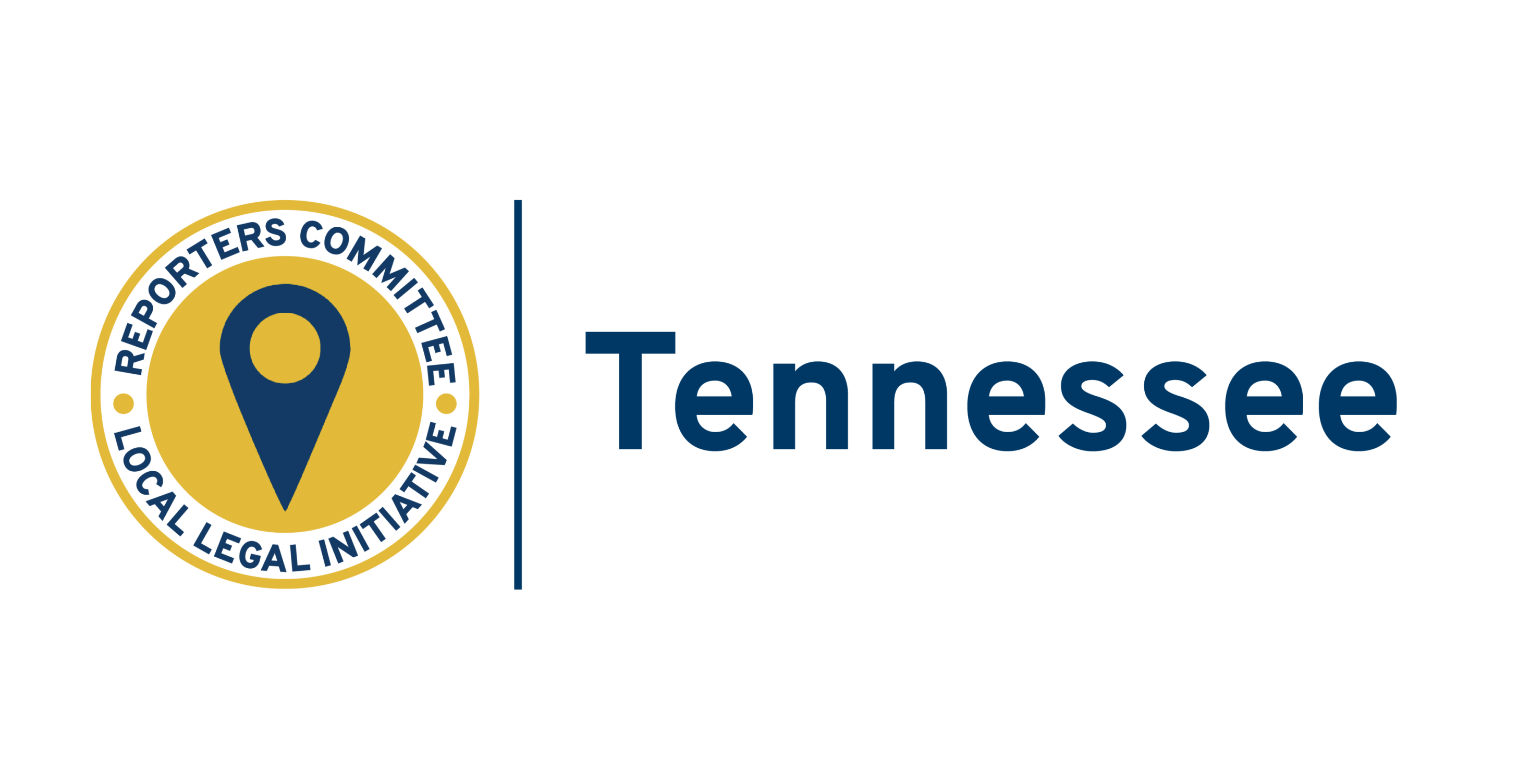On the Docket: Know your right to access court proceedings in Tennessee

This column was originally published in the May 2023 issue of The Tennessee Press, the official publication of the Tennessee Press Association.
A lot of important news happens within the walls of our nation’s courtrooms. It’s your job as journalists to make sure the public knows about it.
But in order to report on newsworthy criminal and civil cases, you must be able to access courtrooms. And that’s not always guaranteed. The laws concerning court access in state and federal courts can sometimes be confusing — not only for cub reporters who have never attended a preliminary hearing, but also for veteran journalists who know all of the court clerks on a first-name basis.

Court proceedings in Tennessee are presumptively open to the public under the common law, the First Amendment to the U.S. Constitution and the Tennessee Constitution. But the right to access court proceedings is not absolute. As the Tennessee Supreme Court wrote in a 1985 decision, “The presumption of openness may be overcome only by an overriding interest based on findings that closure is essential to preserve higher values and is narrowly tailored to serve that interest.”
If the previous paragraph sounds familiar, it’s because I highlighted that high bar for closure in my last column in February about attempts to shield court records. The same high bar applies to attempts to close court proceedings. And that’s good news for members of the press and public because transparency is essential to ensuring the integrity of our court systems. If members of the press and public can’t bear witness to court proceedings, we have no way of knowing whether justice is truly being served.
I obviously can’t tell you everything you should know about the laws on access to court proceedings in a column to fit this space, but I want to use this space to answer at least a few questions you may have about your right to access courtrooms in Tennessee and provide a few tips if you ever find yourself shut out of one.
Can I bring a camera or other recording device into the courtroom?
Pursuant to Tennessee Supreme Court Rule 30, members of the news media who would like to record or broadcast a proceeding must make a request to the presiding judge two business days before a hearing or other proceeding. Judges may only deny a timely request for a limited number of reasons. For example, a judge may deny a request to guarantee the safety of any party, witness, or juror. When permission is granted, there are limitations on recording minors, jury selection, jurors, and closed proceedings, for example. In some situations, a judge may require pooling arrangements, and the rule provides for a variety of other technical requirements. Interestingly, Rule 30 does permit the use of personal hand-held cassette tape recorders that are no more sensitive than the human ear without seeking the judge’s permission, but these records must only be for a journalist’s personal notes and cannot be used for other purposes, like broadcast. Critically, the right to bring cameras into the courtroom is not a constitutional one, so compliance with the requirements of Rule 30 is important.
Can I attend jury selection?
Yes, the same rules that apply to access to criminal and civil proceedings more broadly apply to jury selection, an important pre-trial proceeding.
Are grand jury proceedings open to the press and public?
No. As in most states, the deliberations of grand juries in Tennessee are secret. There is no First Amendment right to access grand jury proceedings, and participating jurors are generally prohibited from discussing them, even after the grand jury’s activities have wrapped up.
What can I do if a court proceeding I’m covering is closed to the public?
Courtroom closures may be rare, but if it does happen, you can challenge it. In both criminal and civil cases, journalists and news organizations can intervene to seek access to the proceedings. (You can do the same for access to court records, as I explained in my February column.) If you learn in advance that a case you’re covering could be closed at the request of one of the parties, talk with your editor to determine whether it makes sense to challenge the closure before it happens. But if the court suddenly decides to close a proceeding that was supposed to be open, you may have to object on the spot. Start by asking the judge for a chance to speak. Once the judge acknowledges you, you could say something like this: “Your Honor, as a member of the public and the press, I object to the closure of this proceeding and assert my common law and constitutional rights under both the First Amendment and the Tennessee Constitution to attend this court proceeding. Pursuant to the Tennessee Supreme Court’s decision in State v. Drake, 701 S.W.2d 604 (Tenn. 1985), I ask that this matter be stayed so that I may contact our attorney to be heard on the issue of closure.” If you are in federal court, you would omit the references to the Tennessee Constitution and cite to the U.S. Supreme Court’s decision in Richmond Newspapers, Inc. v. Virginia, 448 U.S. 555 (1980), instead of State v. Drake. It’s important to keep calm and follow the court’s orders, even if the judge refuses to let you speak, so that you do not risk being held in contempt of court. If you are not permitted to speak and are required to leave the courtroom, write a note to the judge stating that your news organization would like to oppose the closure and give the note to a court officer to pass along to the judge. Then contact your newsroom’s attorney or, if you don’t have one, contact the Reporters Committee for Freedom of the Press.
You may have lots more questions about access to court proceedings than the ones I’ve addressed in this column. If that’s the case, you can consult the Tennessee chapter of the Reporters Committee’s Open Courts Compendium for more information. If you are in federal court, you can consult the Sixth Circuit chapter of the Open Courts Compendium. Additional guidance can be found in the Media Guide to Tennessee’s Legal System, a resource compiled by the Tennessee State Courts.
Paul McAdoo is the Tennessee Local Legal Initiative attorney for the Reporters Committee for Freedom of the Press. He is based in Nashville.